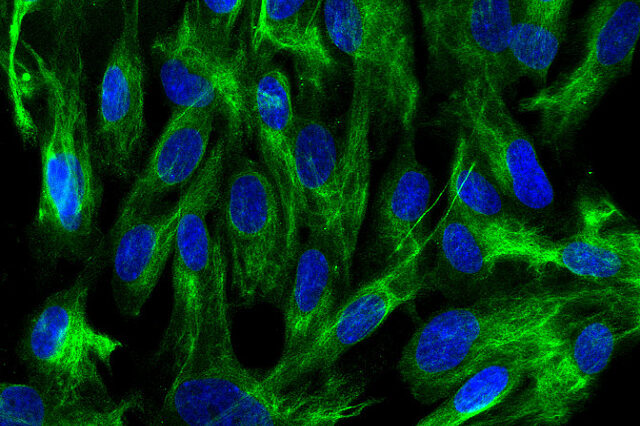Definition
A stem cell is a generic cell that can make exact copies of itself indefinitely. A stem cell has the ability to make specialized cells for various tissues in the body, such as heart muscle, brain tissue, and liver tissue. Stem cells can be saved and used later to make specialized cells, when needed.
There are two basic types of stem cells:
- Embryonic stem cells: These are taken from aborted fetuses or fertilized eggs that are left over from in vitro fertilization (IVF). They are useful for medical and research purposes because they can produce cells for almost every tissue in the body.
- Adult stem cells: These are not usually used for research because they are specific to certain cell types, such as blood, intestines, skin, and muscle. The term adult stem cell may be misleading because both children and adults have them.
Alternative Names
Regenerative medicine - stem cells
Information
POTENTIAL USES FOR STEM CELLS
There are many areas in medicine in which stem cell research could have a significant impact. For example, there are many diseases and injuries in which a person's cells or tissues are destroyed and must be replaced by tissue or organ transplants. Stem cells may be able to make brand new tissue in these cases. They may even cure diseases for which there currently is no good therapy. Diseases that could be helped by stem cells include:
- Alzheimer and Parkinson diseases
- Diabetes
- Spinal cord injury
- Heart disease
- Stroke
- Arthritis
- Cancer
- Burns
Stem cells could also be used to gain a better understanding of how genetics work in the early stages of cell development. This can help scientists understand why some cells develop abnormally and lead to medical problems, such as birth defects and cancer. In the future, scientists may be able to prevent some of these diseases.
Stem cells may also be useful in the testing and development of drugs. Because stem cells can be used to create unlimited amounts of specialized tissue, such as heart tissue, it may be possible to test how medicines react on such tissues before testing the medicines on animals and humans. Medicines could be tested for effectiveness and side effects more rapidly.
CONTROVERSY ABOUT STEM CELL RESEARCH
In August 2001, President George W. Bush approved limited federal funding for stem cell research. While stem cell research has the potential to provide major medical advances, including cures for many diseases, stem cell research is controversial.
The stem cell controversy is based on the belief by opponents that a fertilized egg is fundamentally a human being with rights and interests that need to be protected and fetuses and fertilized eggs should not be used for research. However, scientists are attempting to create more universally accepted forms of human embryonic stem cells, as well as other types of adult stem cells.
Supporters of stem cell research argue that the fertilized eggs are donated with consent from each couple and would be discarded anyway. Fertilized eggs are not (at this time) being created specifically for stem cell research.
The US government released new stem cell guidelines in 2009. The guidelines cover issues such as informed consent of donors and the wording of consent, as well as the issue of financial gain. The National Institutes of Health (NIH) maintains a register of stem cells, including human embryonic lines that are eligible for government funding.
Lawsuits challenging the use of stem cells have ruled in favor of the government.
References
Gepstein L, Skorecki K. Regenerative medicine, cell, and gene therapies. In: Goldman L, Schafer AI, eds. Goldman-Cecil Medicine. 26th ed. Philadelphia, PA: Elsevier; 2020:chap 38.
Levy M, Boulis N, Rao M, Svendsen CN. Regenerative cellular therapies for neurologic diseases. Brain Res. 2016;1638(Pt A):88-96. PMID: 26239912 pubmed.ncbi.nlm.nih.gov/26239912/.
National Institutes of Health website. National Institutes of Health guidelines on human stem cell research. stemcells.nih.gov/research-policy/stem-cells-faqs. Accessed June 10, 2021.


